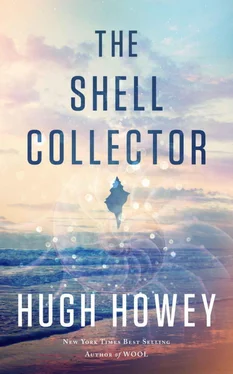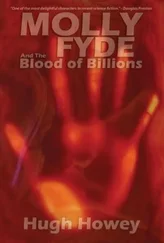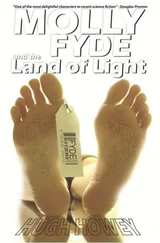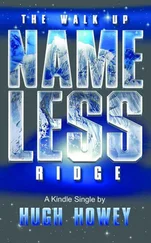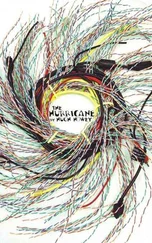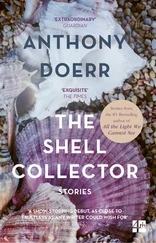“That was amazing,” I say as soon as we reach the surface. “Unbelievable. Like being a fish.”
Ness treads water beside me. He has me inflate my BC and then helps me unbuckle the clasps and shrug off all the dive gear. The tank and all the hoses float on the surface of the water. I see how it works now, and also why you don’t get in without putting the gear on first. Sorting it out in the swell would be a pain in the butt.
He holds my tank for me while I kick off my fins and sling them into the boat. Now it’s just like snorkeling, and I’m a pro. I haul myself up the swim ladder, hold the boat with one hand, and take my tank and BC from Ness. When he gets his off, I take that as well. I feel like an equal partner in the dive now. I’m ready to go again. I want to know when I can go again. And deeper next time. Stay down longer. I have a fever for this. It’s more immediately addictive even than surfing.
Ness throws his fins into the boat, has his mask up on his forehead, and climbs up to join me. “How was it?” he asks.
“Over too quick,” I say. “I want to do it again.”
“You should get certified.”
“I will.” And I plan to. I’ll even let Michael know. Maybe see if he’d want to go on a dive sometime. As friends. I’d like that.
Ness hits a switch on the console and pulls up one of the hatches to the livewells. Water is gushing inside, filling the area where the bait is kept. I watch as he lowers a canister into the pool of water and releases something. A shell. A fly-specked cerith. Tiny. I have to stoop to see it. And then I see the pink foot of the slug inside.
“It’s alive,” I say.
“Oh, yeah,” Ness says, watching the creature. “Ceriths have done well around here. There’s a professor at Stanford who spends a few weeks every summer on this wreck. She says the spill set these puppies up for success in the ocean we have today. They adapted to a toxic environment that’s becoming more and more the norm. In a weird and tragic way, the wreck and the spill were good things. She’s had a hard time getting her papers published, of course. Nobody wants to hear about the life around the ship.” Ness closes the hatch.
“This isn’t the sort of shelling I thought we’d be doing,” I say.
“I’ll show you another spot on the way in,” Ness promises. “We can switch tanks and I’ll just free dive. There’s a fissure a mile off the beach where the good shells get trapped. Still some museum pieces along there. Nobody else has found the spot yet. Of course, I’ll have to blindfold you if you want to go.”
“Absolutely,” I say. And I’m pretty sure he’s kidding about the blindfold.
“Are you hungry?” he asks.
It’s not yet eleven, but I’m starving. Boats and sun and swimming do that to me. “Famished,” I say. I watch as Ness unzips his wetsuit and peels it down to his waist, allowing the empty arms to dangle. It’s impossible not to admire his physique. Ness has a swimmer’s body: powerful arms, shoulders that taper to a narrow waist. Tan and lean like a surfer. The boat sways beneath us.
“Tahitian black pearl,” he tells me.
“I’m sorry?” I shake my head and meet his gaze.
Ness touches the small object around his neck, held there by a leather cord. It’s the necklace I caught a brief glimpse of the other day. “It’s a black pearl,” he says. “From Tahiti. You looked like you were unsure.”
“No, that’s what I thought it was,” I say, pretending that was indeed what I had been looking at. I step closer. The pearl is oblong and puckered on one end. Imperfect. A hole has been drilled through it, the cord knotted on either side.
“Probably not worth five dollars,” he says. “But I found it on a dive with my mom. It was one of our last days together.”
I don’t have to ask. I know the story. His mother died in a boating accident in the Pacific. It’s the first time I think about what we have in common, that he might have been just as scared to go on without her as I was to live a day without my mom. Ness turns away from me and pulls the cooler and the basket out from one of the storage benches.
“Let’s eat,” he says.
I grab my sunglasses, squeeze the water out of my hair, unzip my wetsuit, and cinch the sleeves around my waist. I make sure my bikini top is in place. The small boat bobs up and down on the gathering swell, and birds circle nearby, showing us where the wreck is. The Oasis . A ship mocked for its name back when it was full, but now living up to that moniker in the form of an empty shell.
I have underwater dreams that night. Dreams of reefs and caves and swirling sharks. But they are peaceful dreams. I am not drowning. I am flying, and the ocean is the sky. Beyond the ocean, the old sky is some inhospitable realm, some outer space. Only the flying fish and the dolphin dare leap so high. For the rest of us below the sea, that shimmering plane is our ceiling. We catch wavering glimpses of people peering down at us from the other side. We pay them no mind.
When I wake, I realize I’ve slept later than I did the day before. Partly out of exhaustion, I think. Partly because I don’t want to leave these dreams. And partly because of the hypnotic beat of the rain on the metal roof above.
The sun is already up, but the sky is a dark and heavy gray. This is the antithesis of what I saw the morning before. Yesterday began with perfection and ended with dinner on the dune deck, a moonlit night, another incredible bottle of wine from Ness’s cellar. Is this storm an omen of what today might bring?
Rain patters the roof and hisses against the windows in gusty sheets. A trickle of a breeze descends from the widow’s watch, and I remember that I cracked a window up there the night before. Throwing the sheets off, I rush up in my underwear and crank the window shut. The floor is wet. I move some of the books around, see a copy of Treasure Island , and set that aside to look at later. Grabbing a towel from downstairs to mop up the rain, I imagine that this is when Ness will appear, with me dashing around a glass house in a pair of full-bottomed cotton panties and no bra. I dry the floor and hurry back down to get a robe on. Glancing up the boardwalk toward the house, I see no movement, no sign of Ness. The rain is torrential. Maybe we’re waiting it out.
I asked over dinner the night before what the plan was for today, if it involved more diving. “In a way,” Ness had cryptically answered. He refused to tell me details of our plans and reminded me of my promise not to skip ahead. All he would say, again, was that we were following a natural progression in his discovery of the lace murex shells. I told him I needed to know if that journey ended with us breaking the law, that I didn’t want to be any part of that. Ness had grown quiet. Dour. He said I could leave any time I wanted, that he would make no such promises.
After dinner, I considered calling Agent Cooper to check in, to let him know that Ness seemed sure of himself, that he seemed to be leading me somewhere, and that he had twice now somewhat admitted that what he was doing was illegal. Instead, I wrote some notes in my laptop up in the widow’s watch, jotting down memories for my piece before they faded with time. But the writing session turned into journaling. It turned into an admission of my wavering certainty.
The shells were obvious fakes, but the motive doesn’t make any sense. Ness has more money than God, more status than most politicians, and more notoriety than any film star—and he seems to care little for any of it. What he has in spades is a passion for the sea—a passion I’m very familiar with. Perhaps the shells are a way of sharing that passion? Educational tools? But that’s even more ridiculous. It’s too much trouble, and it doesn’t explain the shock I saw on his face when I pulled out that box, or the hurt he felt at his friend having taken the shells from him.
Читать дальше
